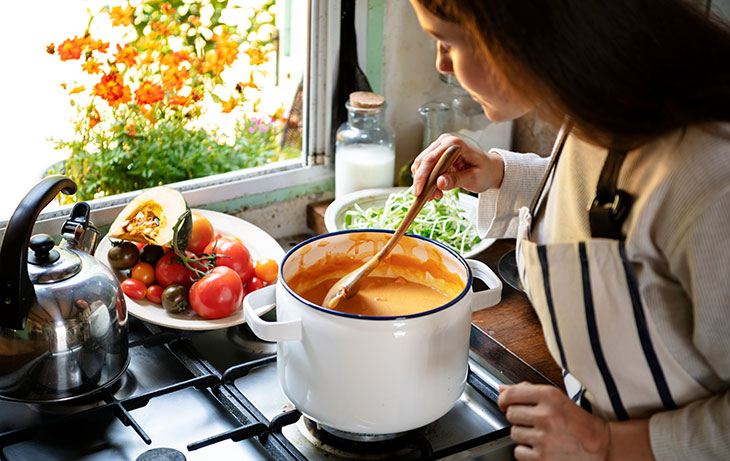
For some, colder months are synonymous with soup season. From creamy tomato to hearty chili, soup is a great way to add local produce.
While some soup recipes are already pretty healthy, there are even more ways to add nutrients to your cozy bowl.
Here are four different substitutions and additions you can make to elevate your soup's health benefits.
1. Greek Yogurt
Comfort soups often include heavy cream or other high-fat ingredients. It's OK to eat these in moderation. Some fats can be great for your hair, skin, and overall health. But sometimes, soups need extra protein.
Nonfat Greek yogurt contains about 3-6 grams of protein for every 1-2 tablespoons. In many recipes, you can easily switch cream for Greek yogurt or add it on top of your bowl of soup.
Aside from the high protein in Greek yogurt, it also contains probiotics. These improve gut health by supporting the live bacteria already in your body. Greek yogurt also contains vitamin B12, which helps support the creation of red blood cells while improving your central nervous system.
2. Pumpkin Seeds
Pumpkin seeds have great taste and texture, making them a perfect topping for a variety of soups.
These seeds are gluten-free, if unflavored, and are an excellent source of healthy fat and protein. Healthy fats are beneficial to heart health. Pumpkin seeds also contain magnesium, which promotes stronger bones and can help manage blood pressure.
Check out other ways to cook pumpkin (Good Food is Good Medicine)
3. Lentils
Lentils are an excellent plant protein option and are rich in flavor and color. This legume has about 18 grams of protein per cup. Lentils are also high in fiber, which can improve your gut health and digestion.
They add a slightly sweet and nutty flavor to dishes and are relatively inexpensive. You can also blend them into your soup, resulting in a hidden nutrient-dense addition.
Learn more about tips for good gut health (Good Food is Good Medicine)
4. Roasted Chickpeas
Chickpeas, also known as garbanzo beans, are another ideal source of plant protein. These are often found in hummus and other Mediterranean dishes. You can use dry roasted chickpeas as a soup topping or side snack.
For every 100 grams of dry roasted chickpeas, you get about 10 grams of protein, which can lead to improved muscle growth. Dry roasted chickpeas also contain about 6 grams of dietary fiber for every ounce. Fiber helps keep our digestive system healthy and may lower blood cholesterol.
Here is another recipe you could try making chickpeas with (Good Food is Good Medicine)
This blog was reviewed by UC Davis Health registered dietitian Marie Barone.




